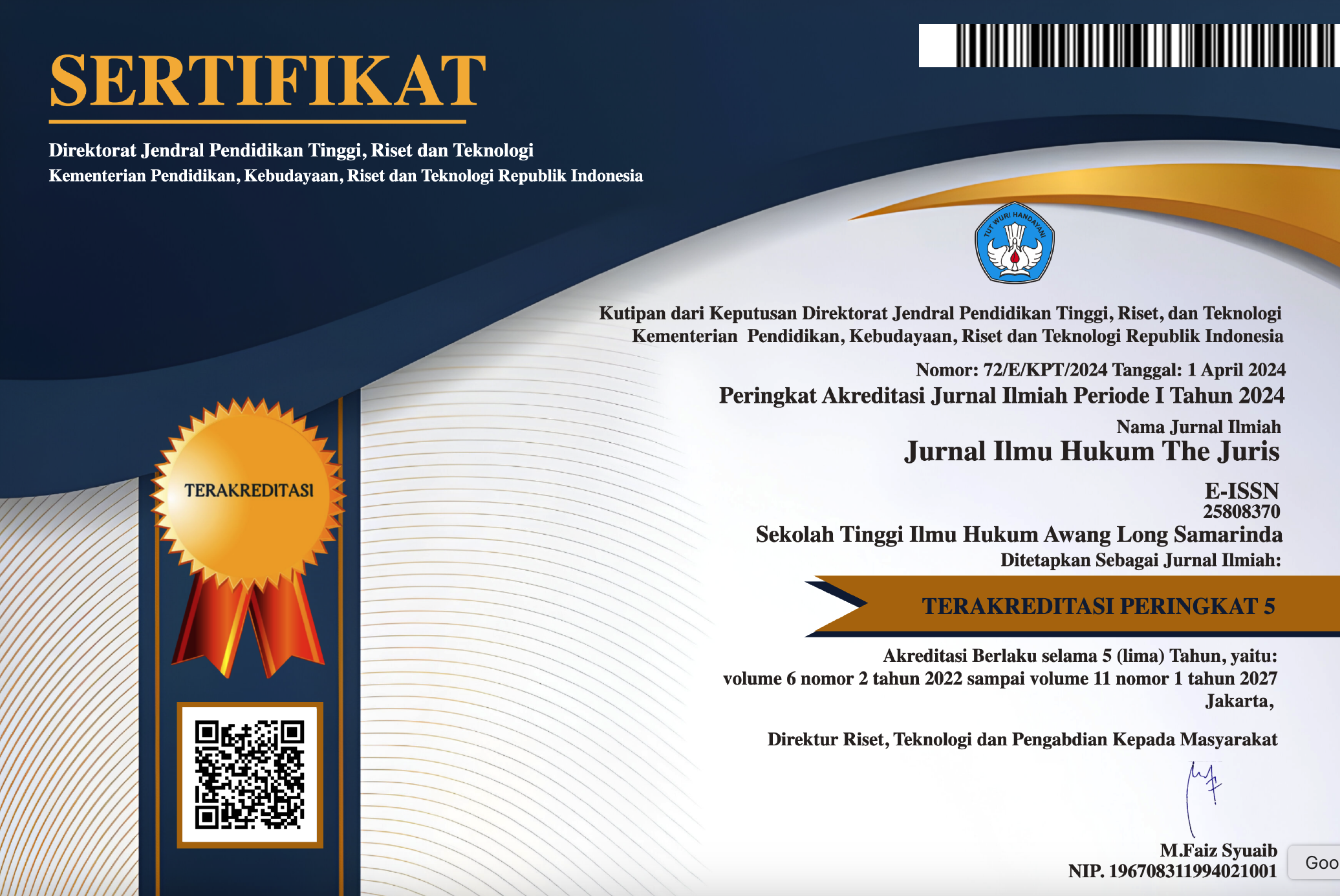PENEGAKAN HUKUM TINDAK PENGANIAYAAN DALAM MENERAPKAN RESTORATIF JUSTICE
Abstract
The National Police Regulation on Handling Crimes based on Restorative Justice is a step taken by the National Police in realizing the resolution of criminal acts by prioritizing Restorative Justice, which emphasizes restoring the original state and balancing the protection and interests of victims and perpetrators of criminal acts that are not oriented towards punishment, is a legal necessity in society. The Police Regulation on Handling Crimes based on Restorative Justice is a new concept in criminal law enforcement that accommodates the norms and values prevailing in society as a solution while providing legal certainty, especially the benefit and sense of justice of the community, in order to answer the development of the legal needs of the community that fulfills the sense of justice of all parties, which is a manifestation of the authority of the National Police in accordance with Article 16 and Article 18 of Law No.02 of 2002 concerning the National Police of the Republic of Indonesia.The method used is normative legal research. Based on the results of the research, it is known that the Regulation of the Indonesian National Police (Perpol) No. 8 of 2021 concerning law enforcement of persecution applies a restorative justice approach, which can be understood from a legal sociology perspective as an effort to restore social relations and resolve conflicts in an equitable manner. Restorative justice emphasizes the rehabilitation of perpetrators and the restoration of relationships between perpetrators and victims, creating social balance, and reducing stigmatization. This approach reflects a paradigm shift from punitive sanctions to social repair, which is expected to make a positive contribution to the social dynamics of society.
Downloads
References
Artidjo Al kostar, Restorative Justice, Majalah Hukum Varia Peradilan, Nomor 262 September 2007, (Jakarta: IKAHI, 2007)
DS. Dewi, Mediasi Penal : Penerapan Restorative Justice di Pengadilan Anak Indonesia, (Depok, Indie Publishing, 2011), hlm. 34-38., Sebagaimana Dikutip Oleh Laras Astuti, Penyelesaian Tindak Pidana Pencurian Oleh Anak Melalui Pendekatan Keadilan Restoratif (Restorative Justice), Universitas Muhammadiyah Yogyakarta, Yogyakarta
Johnny Ibrahim, Teori dan Metodologi Penelitian Hukum Normatif, (Malang :Bayumedia,
Lili Rasjidi, Ira Thania Rasjidi, Pengantar Filsafat Hukum, Mandar Maju, (Bandung: PT. Citra Aditya Bakti, 2007)
Mochtar Kusumaatmadja. Hukum, Masyarakat, dan Pembangunan. (Bandung: Binacipta, 2006)
Peter Mahmud Marzuki, Penelitian Hukum, Cetakan II, (Jakarta: Kencana, 2008)
Shidarta, Karakteristik Penalaran Hukum Dalam Konteks Ke-Indonesiaan,(Jakarta: CV Utomo, 2006)
Soekanto Soerjono, Pokok-Pokok Sosiologi Hukum, (Jakarta: Rajawali Pers, 2009)
Soekanto, Sarjono, 1998, Pokok-Pokok Sosisologi Hukum: PT. Raja Grafindo Persada: Jakarta
Undang-undang No.02 tahun 2002 tentang Kepolisian Negara Republik Indonesia
Copyright (c) 2023 M. Yusuf DM, Roy Ando Sirait, Reski, Henny Susylawaty Ginting, Rezky Imelda

This work is licensed under a Creative Commons Attribution-ShareAlike 4.0 International License.







